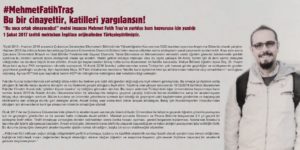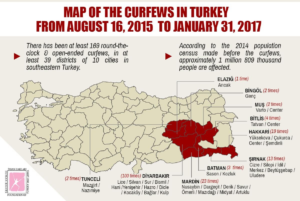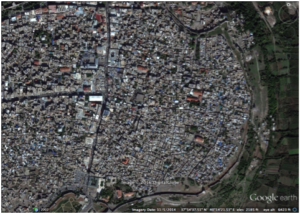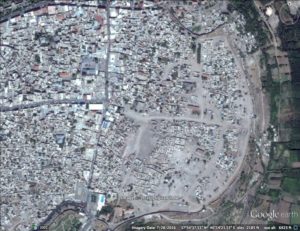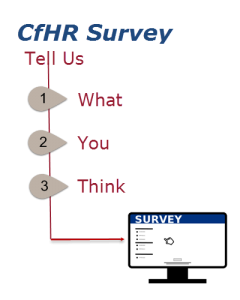The R-word and the G-word: On counting and accountability in the case of the Rohingya
This article was contributed by an anthropologist who needs to remain anonymous given the sensitivity of the issue.
Slowly but surely, the international public has begun to acknowledge that “the Rohingya issue” in Southeast Asian Myanmar might constitute a case of genocide. Previously many aspects of the situation “on the ground” were not well documented, partly because of the long-term systematic exclusion by the Burmese government of international journalists and agencies from the area where most Rohingya live (Northern Rakhine State), and partly because of the intimidation of local journalists, fixers and human rights workers. By now, however, we do have numerous NGO reports, documents issued by UN fact-finding commissions, written assessments by legal scholars, and systematic recording and cross-checking of eyewitness accounts from the makeshift refugee camps in Bangladesh.
The international public should thus not be confused over how to categorize the refugee crisis with the highest weekly outflow since Rwanda in 1994 because of a putative lack of trustworthy information. People are finding it hard to put together how a Buddhist country, whose government is headed by the winner of a Nobel peace prize, a country that has been hailed in recent years for its “opening up” and its embrace of democracy, has now – even under the eyes of a carefully observing global audience – become a site of genocide. A common reaction when trying to come to terms with such unimaginable atrocity is to employ quantification. We count victims: mutilated, raped, disabled, emaciated bodies. Every day there are new numbers available of bodies transgressing borders, bodies crossing rivers, bodies collapsing on the side of the road, dead bodies. In her recent work on “The Seductions of Quantification: Measuring Human Rights, Gender Violence, and Sex Trafficking” (2016), the legal anthropologist Sally Engle Merry has observed that there has been an increase in the quantification of bodies in catastrophic situations, much to the neglect of qualitative ethnographic accounts. But counting and accountability are intrinsically connected. There lies an ethical dimension within the numerical and the representational that has less to do with numbers and more to do with how we reach a judgment or a decision, how we come to value and ultimately understand a social situation. The atrocities are what they are the moment they are committed, but the labelling shifts over time and depends not only on quantification, but also on public pressure. As scholars, we first of all have to hold ourselves accountable to keep this pressure up.
While counting can be easily done – think of handing out ID cards, food rations, housing supplies – and is easily conveyable to others beyond mere numbers – think of cameras zooming in on people standing in lines waiting for food or zooming out via drones in order to show the vastness of the crisis in terms of its geographical encompassment – accountability cannot be achieved through mere “taking stock.” It requires reflexivity and the attentiveness towards the suffering of others. Despite the reign of audit culture (Strathern 2000), however, quantifying procedures of accountability can never substitute for ethical responsibility. Therefore, what has made all the difference for me in coming to terms with the situation “on the ground” were reports of individual case stories by photographers and journalists who followed a particular family along their flight or who have encountered a particular person in the camps and tried to tell a part of their story (some of them were imprisoned in Bangladesh or Myanmar for carrying out their work). These are the stories that we need to take into account when entering discussions about what it is we are currently witnessing in Myanmar.
For years, there has been a wide and heated debate about “saying their name” – Rohingya or the “R-word” – in international and local discourses. The Burmese government, including Aung San Suu Kyi, do not use the name Rohingya. It is nowhere to be found in local legislation, and international visitors such as former President Obama, the Head of UN Commissions or, most lately, the Pope, are advised to avoid it. While locally monks and demonstrators rally under banners of having to free the countries from “illegal Bengalis” and cry out that “there are no Rohingya in Myanmar,” the international public encourages everyone to “say their name.” In a reversal of moral standpoints, however, the international public has until recently shied away from calling the situation in Northern Rakhine state a genocide. The definition of the term is important – according to Art 1 of the Genocide Convention an official recognition of an atrocity as a genocide has to have consequences since the contracting parties to the convention are then obliged “to prevent and to punish” what is a crime under international law. In the cases of Rwanda and Bosnia – two analogies that have been frequently drawn in relation to the situation in Myanmar – the international community stuck to the label of “ethnic cleansing.” Likewise, the US state department concluded on November 22 2017, that there is “ethnic cleansing” going on in Rakhine state, a term not defined in international law and therefore marked as merely “descriptive” by the officials. In human rights reporting, journalistic documentation and anthropological analysis, however, we are not bound by the legal implications of calling the situation what it is as a state party might be once it starts using the term genocide. It would seem that our accountability requires us, in the face of the overwhelming evidence, to not only say the R-word but also the G-word, and to continue raising awareness. This might not yield immediate results, which is difficult to endure; there are no measures available to anybody but the armed forces of Myanmar to stop the atrocities immediately, and they do not seem inclined to do it. But it is imperative to take a stance even though the initial effect on Myanmar’s internal politics might be an increased closing of ranks between large parts of the population and the government/military.
“May we all learn and act on the lessons of Srebrenica,” cautioned the UN Secretary-General in 2005, 10 years after Serbian General Ratko Mladic had ordered the killing of more than 8000 Bosnian men and boys and the forceful removal of women, children and elderly in and around the town of Srebrenica. The International Criminal Court of Justice (ICC) in Den Haag convicted Mladic on November 22, 2017 with genocide and crimes against humanity. The UN High Commissioner for Human Rights commented on the verdict as follows: “Today’s verdict is a warning to the perpetrators of such crimes that they will not escape justice, no matter how powerful they may be nor how long it may take. They will be held accountable.”
Literature cited
Merry, Sally Engle. 2016. The Seductions of Quantification: Measuring human rights, gender violence, and sex trafficking. Chicago: University of Chicago Press.
Strathern, Marilyn, ed. 2000. Audit cultures: Anthropological studies in accountability, ethics, and the academy. London and New York: Routledge.
Filed under: genocide, Human Rights, Myanmar, refugee, Rohingya | Comments Off on The R-word and the G-word: On counting and accountability in the case of the Rohingya
